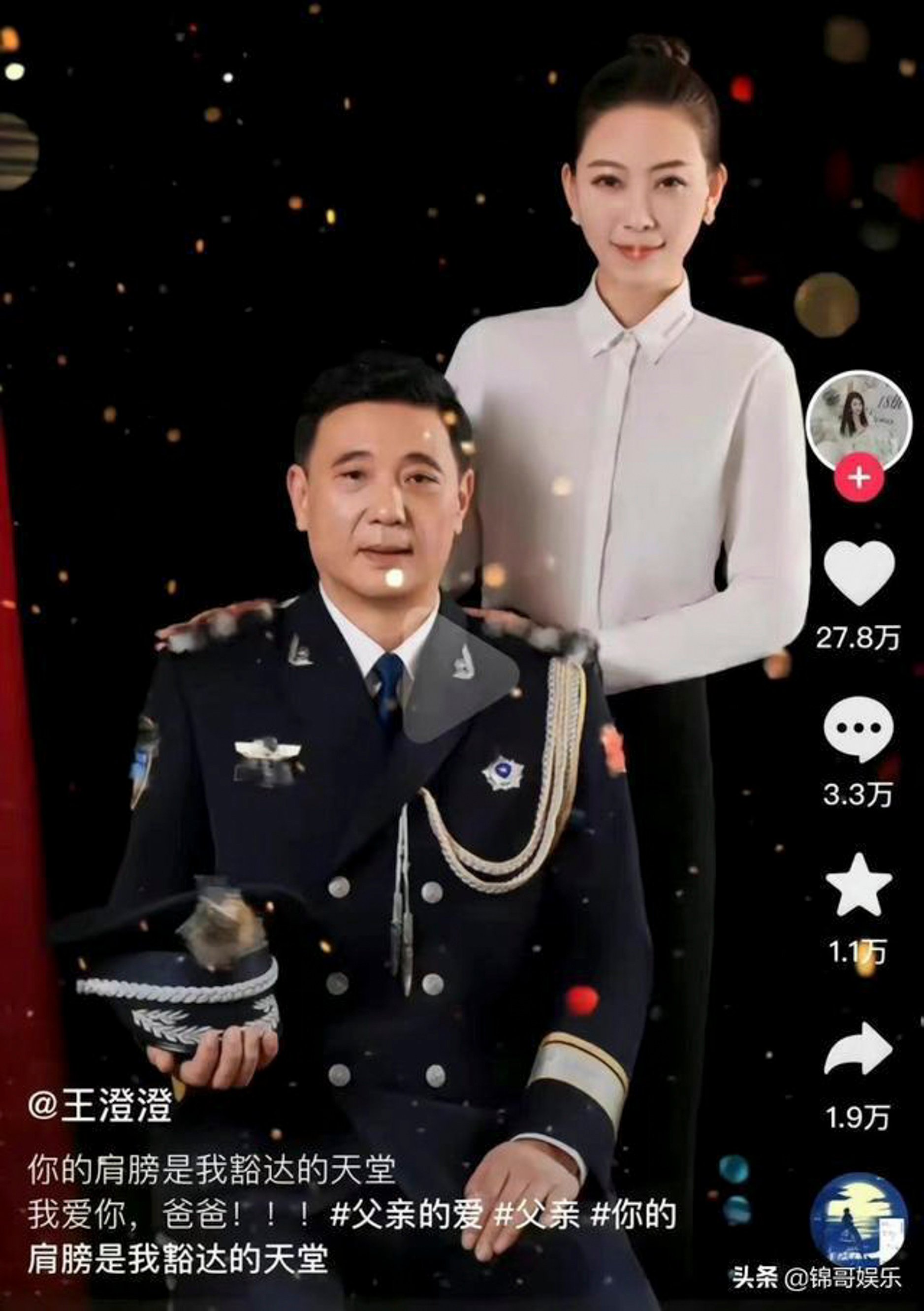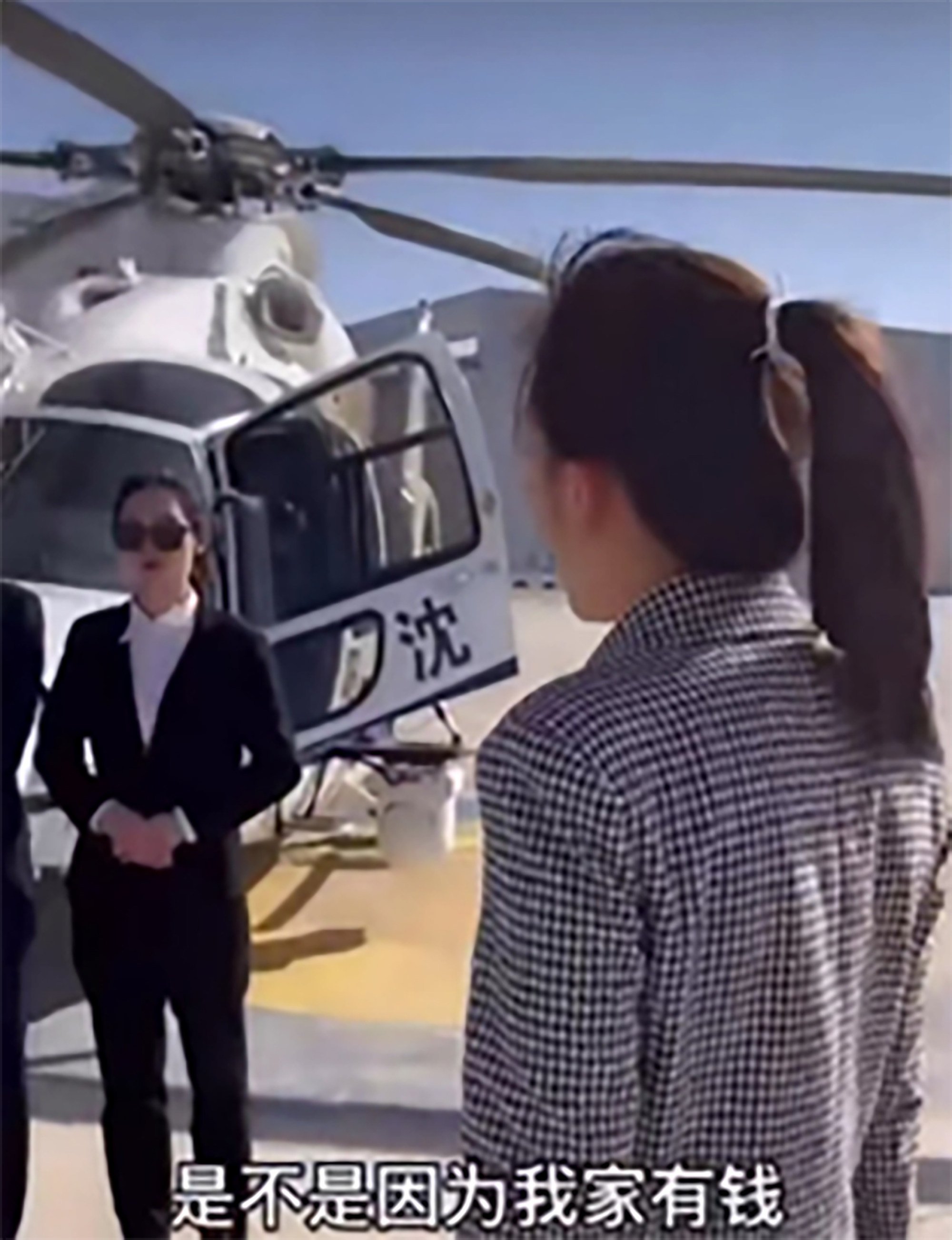A Chinese influencer who claimed she spends 150,000 yuan (US$22,200 or RM98,852) a day and travels by helicopter has been blasted on mainland social media and criticised by state propaganda outlets for promoting the worship of money.
Wang Xuancheng, known as Wang Chengcheng to her three million followers on video app Douyin, has come under intense criticism after sharing a video where she posed as a wealthy socialite with a police helicopter last week.
Her Douyin account was banned shortly after the scandal erupted. In previous posts on her account, the 31-year-old boasted that she owned an opulent 400-square metre mansion, drove around in a Rolls-Royce, and spent more than 150,000 yuan (RM98,852) a day.
She also claimed her father was a high-ranking police officer, prompting many to question if that was how she had access to a police helicopter and if an abuse of power had occurred.

Authorities in Shenyang in Liaoning province, northeastern China, where Wang lives, said the helicopter is privately owned and only leased to local police. They said that Wang had only used it for filming videos and did not have access to it for private travel.
In response to public concern, Shenyang police issued a statement to clarify that Wang’s father is a retired low-ranking police official and that Wang started her own company in 2017, but did not specify the nature of the business.
The general manager of the private company that owns the helicopter was sacked for allowing Wang to use the aircraft in her videos.
“I have my own cars, property and business. I haven’t asked for a penny from my family since I was 22,” she said in a previous post on her Douyin account.
Wang previously owned two companies specialising in milk tea and another in energy technology, according to Tianyancha, an online database of Chinese companies. But both ventures had been wound up in the past few years.
Chinese state media has used Wang as the latest example of a decadent influencer as the government continues its crackdown on online celebrities who flaunt their wealth and brag about their lavish lifestyles.

“Some platforms make every effort to cater to the weakness of human nature. They try to attract traffic and maintain daily user activity by promoting vulgar, entertaining, and sensational content,” wrote the Beijing Daily in an editorial criticising Wang on Wednesday.
“It’s not a big deal for a handful of influencers to fall from grace. What’s important is we keep away the evil trends online,” it said.
Wang’s sudden downfall is reminiscent of the case of Guo Meimei, one of China’s first influencers. Guo was infamous for ostentatious displays of wealth on social media. She was at the centre of a scandal in 2011 after it was revealed she falsely claimed she ran an organisation under the umbrella of the Red Cross. She was later arrested for running an illegal casino and sentenced to five years in jail in 2015. last year she was sentenced to 30 months in jail for selling illegal diet pills.
Last year, Chinese authorities barred celebrities from showing off wealth on social media amid a crackdown on the entertainment industry and online fandom, which were deemed to have undermined social values.
In a directive issued in November by the Cyberspace Administration of China, celebrities were ordered to: “Maintain a healthy lifestyle and taste” and avoid promoting “extravagant pleasure” online. – South China Morning Post

